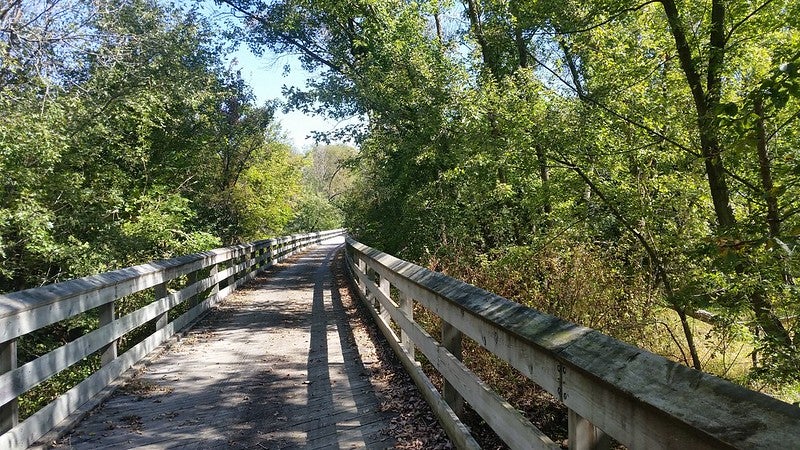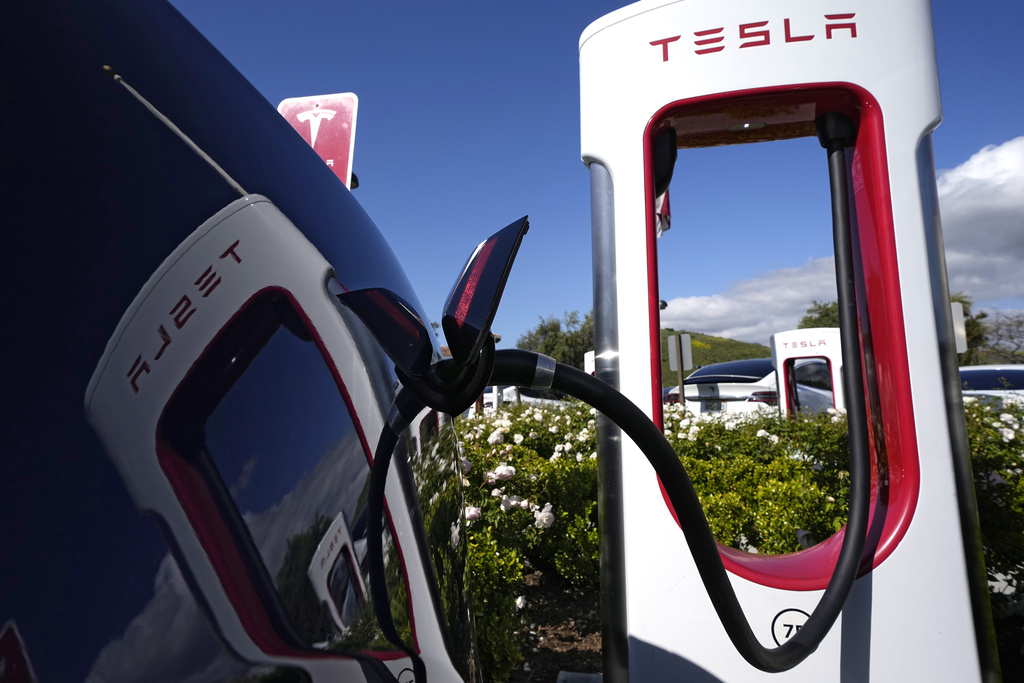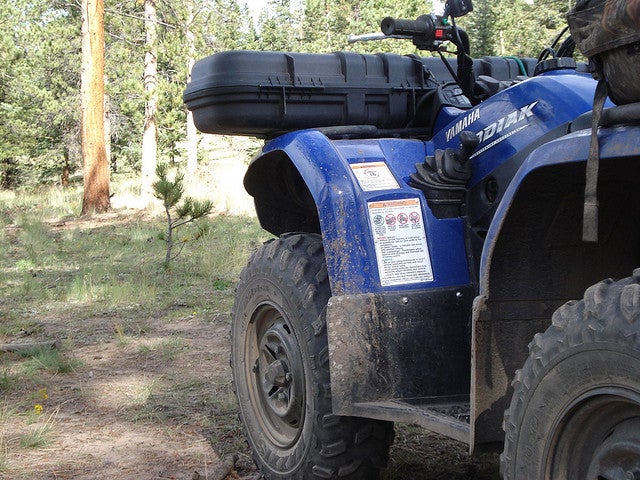Public input is divided over whether to allow motorized vehicles on two trails in southwestern Wisconsin, with supporters wanting fair access to public trails and non-motorized users worried about trail damage and safety.
All-terrain and utility-terrain vehicle enthusiasts in Wisconsin counties on the Illinois border are asking the state Department of Natural Resources to consider allowing access to the Sugar River State Trail and the Badger State Trail — two trails that currently restrict or prohibit motorized vehicle use.
The Sugar River State Trail follows an old rail line for 24 miles and connects the communities of New Glarus, Monticello, Albany and Brodhead and is used primarily by bicyclers, hikers and — when there’s enough snow on the ground — snowmobile operators. The Badger State Trail runs for 40 miles between the Illinois-Wisconsin border and Madison. It intersects with the Sugar River Trail at Monticello.
News with a little more humanity
WPR’s “Wisconsin Today” newsletter keeps you connected to the state you love without feeling overwhelmed. No paywall. No agenda. No corporate filter.
The input received by the DNR calls for ATV/UTV use on the Sugar River Trail between Brodhead and Monticello; and on the Badger State Trail between Monticello and Monroe. ATVs are allowed on the Badger State Trail with restrictions that limit use based on date, amount of snow on the ground and temperature.
There are very few options for ATV/UTV operators in southern Wisconsin, advocates for the change said. Tina Redington is secretary of the Green County ATV Club, and said the Cheese Country Recreation Trail has about nine miles open to motorized vehicle use.
That’s a big part of the issue, said Wisconsin ATV/UTV Association (WATVA) vice president Rob McConnell. Neither Dane, Rock, Jefferson nor Iowa counties have trails devoted to motorized vehicle use.
“There’s a lot of rural parts of southern Wisconsin that we think we could utilize without causing conflicts,” he said.
Both trails are part of the DNR’s Southwest Savanna Ecological Landscape — an area in southwestern Wisconsin that covers Lafayette County and portions of Grant, Green, Iowa and Dane counties.
The DNR is in the early stages of a creating a new master plan for the Savanna landscape, which is one of 16 regions throughout the state to have their plans revised every 15 years. Plans include whether motorized vehicles can be used on trails contained in those areas.
Savannah Ernzen, DNR planner, said she’s received feedback both in support and in opposition of UTV and ATV use on Sugar River and Badger state trails, and that information will be reviewed and considered in the master plan draft, scheduled to be released sometime in late summer.
Following that release is at least a 30-day review process, where the public will have more opportunity for input. That version is then updated and goes to the Natural Resources Board that will consider it for approval.
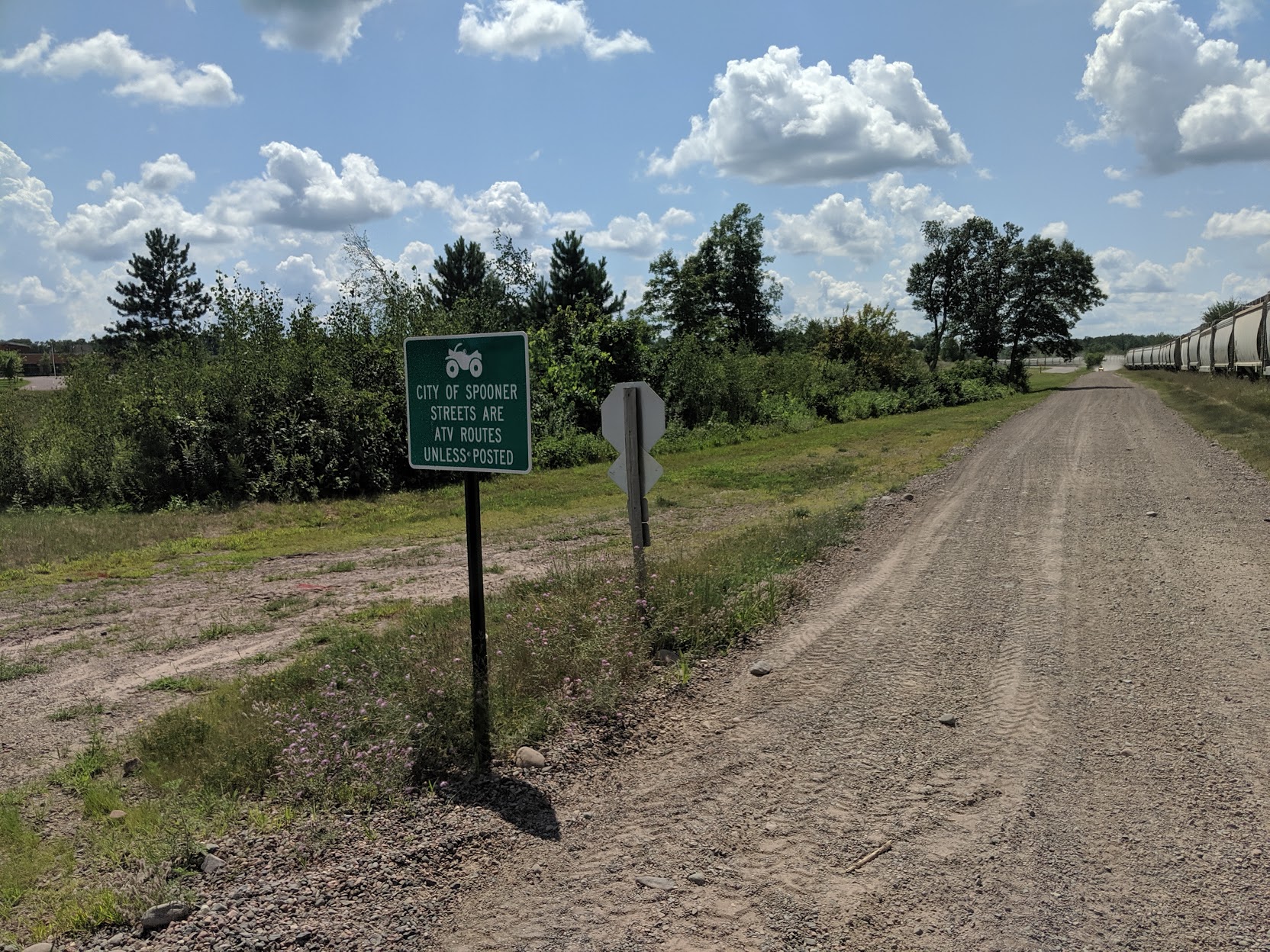
Some of the input Ernzen is reviewing is from Friends of the Badger and Sugar River State Trails, a group that works with the DNR and promotes the use of the trails. Its board recently conducted a survey asking its 282 paid members and others via their Facebook page what they thought of the trails being opened to ATV use.
Christine Belle, the Friends group treasurer, said the results from 252 respondents showed 94 percent don’t want motorized vehicles on the trails, with several comments questioning the safety of a multi-use trail that they say isn’t wide enough to share.
“I think that all of us on the board want people to be able to enjoy the trails,” Belle said. “And we know that there are multiple ways that people could do that.”
Some of the respondents who said they don’t want to share the trail with ATV/UTV operators referred to the Cheese Country Recreation Trail, which runs through Green, Iowa and Lafayette counties, as a leading example for why: Operators go too fast and contribute to noise pollution, they say. Additionally, vehicles create ruts that are hard to fix, respondents said.
The Badger State Trail runs through Belle’s yard, and she said that during the winter months when snowmobilers are allowed on the trail, she and her family try to stay off of it.
“A lot of times during the day it’s families … going out and enjoying the winter weather,” she said. “But as it gets later in the day, those families turn into people who are going very fast, aren’t really paying attention, and it becomes dangerous.”
She said it’s not a big deal to her now, because fickle winter weather often reduces snowmobile traffic. But if ATV/UTVs ran all year, that would change her mind.
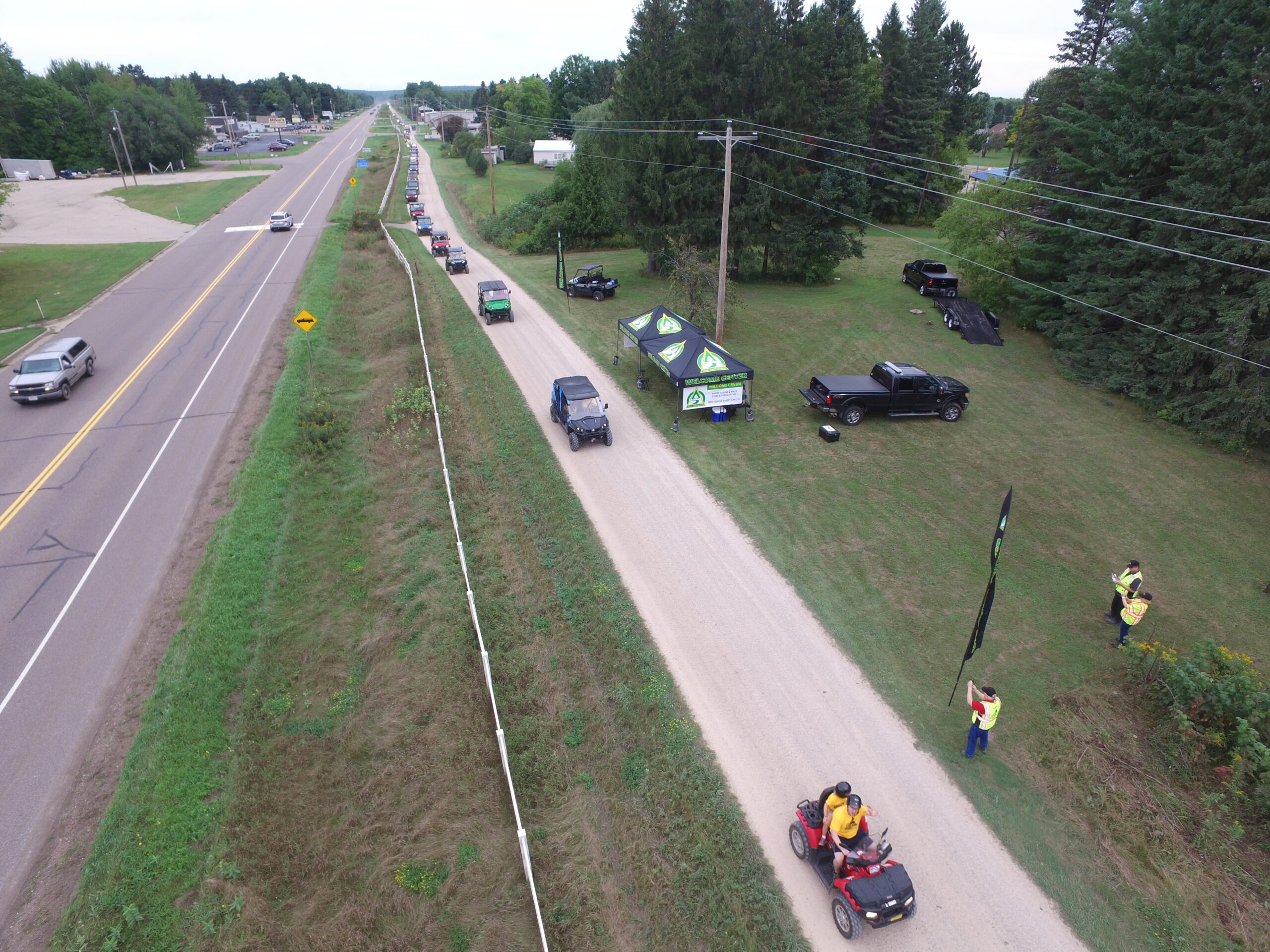
The state charges $25 annually for passes to use state trails. Some of that revenue is returned to the trails in the form of upkeep. ATV users pay for use of the trails through registration fees and taxes, and state trails that allow motorized vehicles get some of this money.
WATVA’s McConnell, who serves on the governor’s council for off-road vehicles, said the registration and gas revenues contribute to a $7 million annual funding program that helps pay for trail maintenance, signs, law enforcement and administrative costs on ATV/UTV trails.
“State trails just don’t have adequate funding unless they’re allowing snowmobiles and ATVs — they’re the only two programs that really have a funding source that always has funds available for trail work,” he said.
But the DNR already does what it can to take care of the trails, and maintenance has only been more difficult this year because heavy rains caused damage to the trails, wrote Kassandra Huffman. She started a petition on change.org against endorsing any changes to current law. So far, that petition has close to 11,000 signatures.
Still, the potential economic impacts of allowing motorized vehicles on these trails — including the potential for tourism — have convinced some local governments to debate endorsing the change. The question was posed on a recent Brodhead City Council agenda, and council members opted to explore it as an option. In Monticello, the Community Club voted in April for a resolution favoring ATV and UTV use on the recreational trails and on some streets in the village.
While such a law change would be required for ATV and UTV use on village roads, Ernzen said the DNR doesn’t require trail cities to endorse trail use changes. That’s just another form of public input, she said.
This story has been corrected. The Village of Monticello has not voted on ATV/UTV use. The Community Club voted to make a recommendation to the Village to approve it.
Wisconsin Public Radio, © Copyright 2025, Board of Regents of the University of Wisconsin System and Wisconsin Educational Communications Board.

